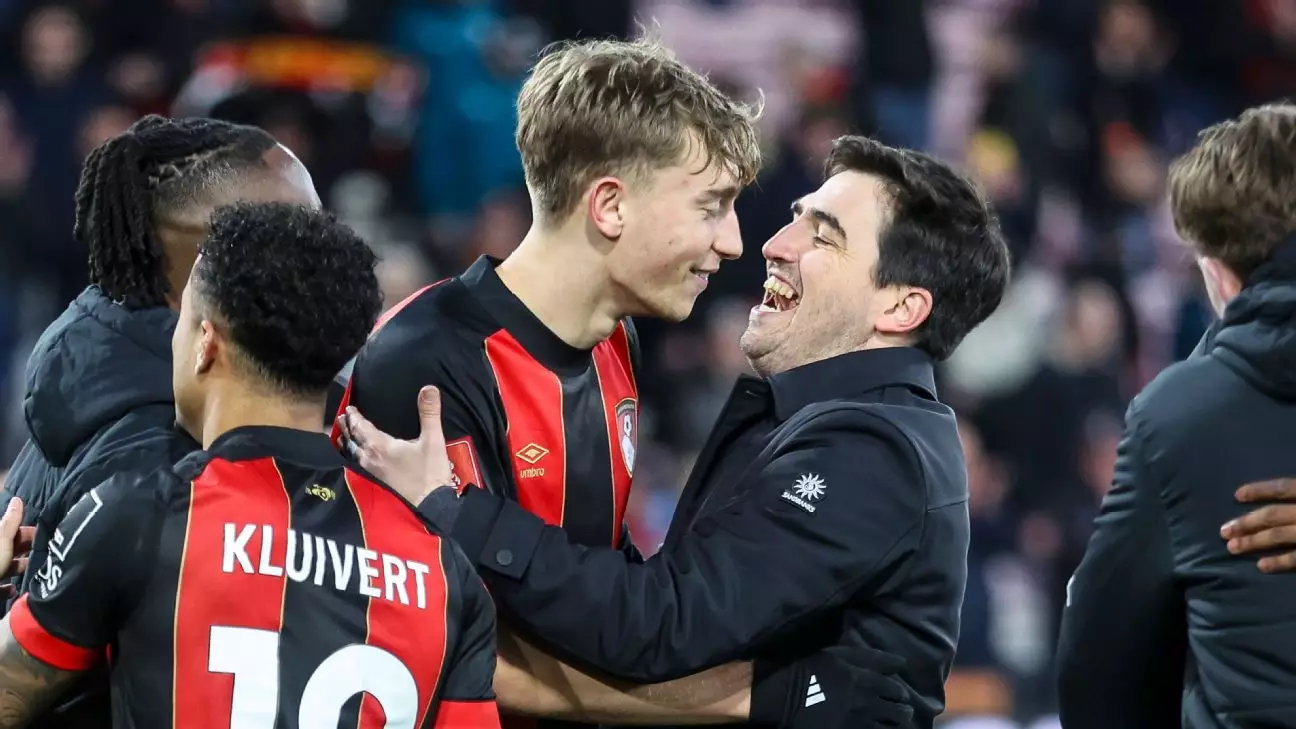The acknowledgment of young talent in football is essential, but the current structure of the PFA Young Player of the Year award appears increasingly outdated. Criteria that restrict eligibility to individuals aged 21 or under at the season’s commencement do not reflect the dynamic evolution of modern football. Rising stars like Bukayo Saka and Phil Foden, who have become household names, exemplify the paradox of the existing awards—it honors players who have already attained substantial recognition rather than celebrating true newcomers.
Furthermore, the Premier League’s own Young Player of the Season extension allows participants up to 23 years old to vie for accolades, which, while slightly more accommodating, still sidelines younger entrants who are only embarking on their professional journeys. The time has come to redefine what it means to be a “young player” in the footballing landscape.
The Case for a Rookie of the Year Award
Drawing inspiration from the NBA, the proposal to introduce a Rookie of the Year award in the Premier League carries merit. Instead of blindly extending age limits, the criteria should emphasize freshness—inexperience and potential. The new concept would involve recognizing players who began the season as teenagers, those who are embarking on their first full Premier League campaigns. This significantly shifts the focus to the spirit of discovery and breakthrough, echoing the exhilarating essence of rising footballers.
The definition of a rookie brings back the excitement of witnessing unknown talents burst onto the scene, capturing hearts and creating memorable moments. The eligibility criteria could shine the spotlight on prospects in various developmental stages—including academy graduates and newcomers from other clubs—while ensuring that players who have established themselves priorly do not overshadow the latest stars to shine.
Spotlight on Unproven Talents
Looking at the current crop of players, there is an impressive array of talent ready to make waves. Noteworthy among them is West Ham’s teenage left-back, Scarles, who has navigated the demanding conditions of the Premier League with remarkable composure. Despite facing seasoned opponents, his recent performances, particularly a standout match against Arsenal, are indicative of his potential. In a time when left-backs often get lost in tactical structures, Scarles has shown that fresh faces can bring dynamism to positions that have lacked youthful energy.
Conversely, the trajectory of players like Dorgu and Yoro reinforces the importance of physicality and resilience. Dorgu’s transition into a struggling club landscape has showcased his ability to adapt amidst adversity, whereas Yoro’s impressive minutes despite injury setbacks are testament to his tenacity. Clearly, these players may not yet have carved out their legacies, but their impact on match days emphasizes their potential upside.
Championing Resilience Amid Adversity
The parallels drawn from experienced youngsters like Gray, who has shown versatility by adapting to various roles at Spurs, underscore the growth potential inherent in youth players. Even in a disappointing season, Gray’s adaptability provides hope for Spurs and offers insights into how tactical flexibility can still yield positive outcomes, even through turbulent times.
Dibling’s exciting emergence as a fearless dribbler for Southampton is another case that reflects the power of youthful exuberance. Even amid team struggles, Dibling’s performance metrics—leading the league in carry averages—indicate that impact can occur beyond the critical role of goal-scoring. His performance serves as a message: young players can still make waves in challenging conditions, demanding recognition for having the grit to keep going against all odds.
Transcending Expectations
Moreover, players like Nwaneri and Lewis-Skelly are living testaments to the idea that coaching strategies can unlock hidden potential. Nwaneri, once the youngest Premier League player, has grown his game exponentially. His journey illustrates how nurturing an explosive talent through calculated exposure can yield astounding results, paving the way for other young players to realize success without the pressure of immediate stardom.
Lastly, Huijsen’s rapid integration into the Premier League emphasizes how strategic recruitment is a growing trend for clubs. Demonstrating ball-playing capabilities seldom seen in young defenders, Huijsen’s switch to Bournemouth solidifies the argument that new talent is both viable and promising. If clubs act swiftly and intelligently in scouting young players capable of stepping into challenging environments, they foster a bright future that embodies the essence of what the Rookie of the Year should represent.
Reimagining the Rookie of the Year award is not just a practical adjustment, but an essential evolution in celebrating untapped potential within football. Emphasizing youth, fresh starts, and unwavering resilience is the path forward in advancing the culture of recognizing young talent in the beautiful game. The next generation is ready to shine—and it’s time for the awards to catch up.

